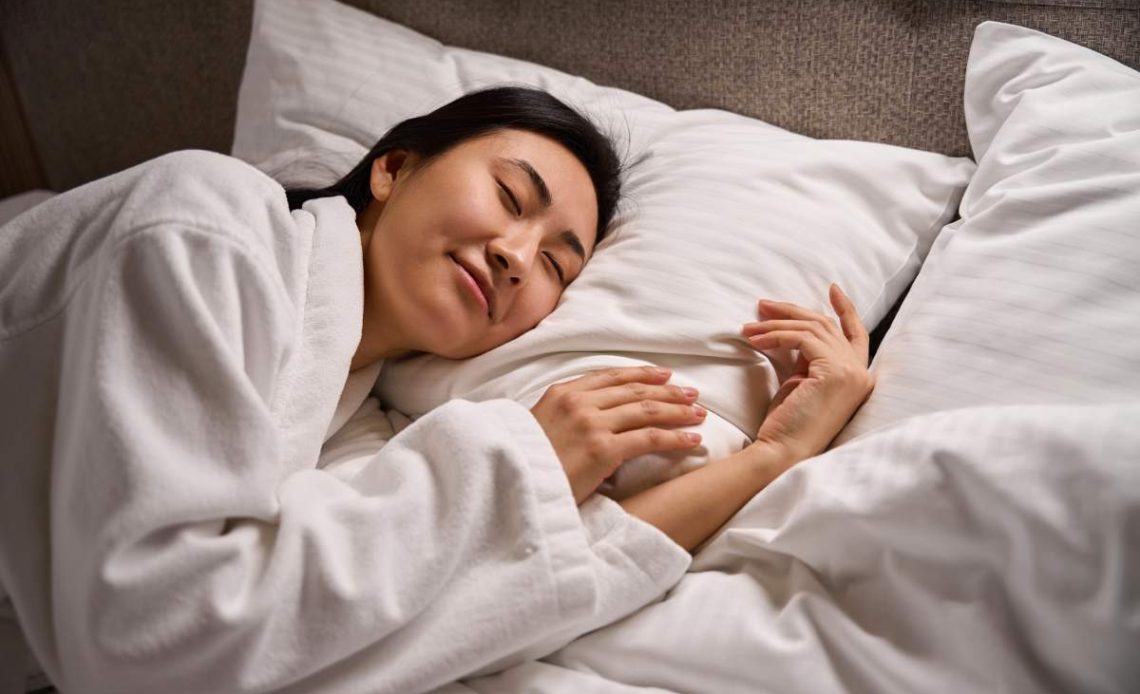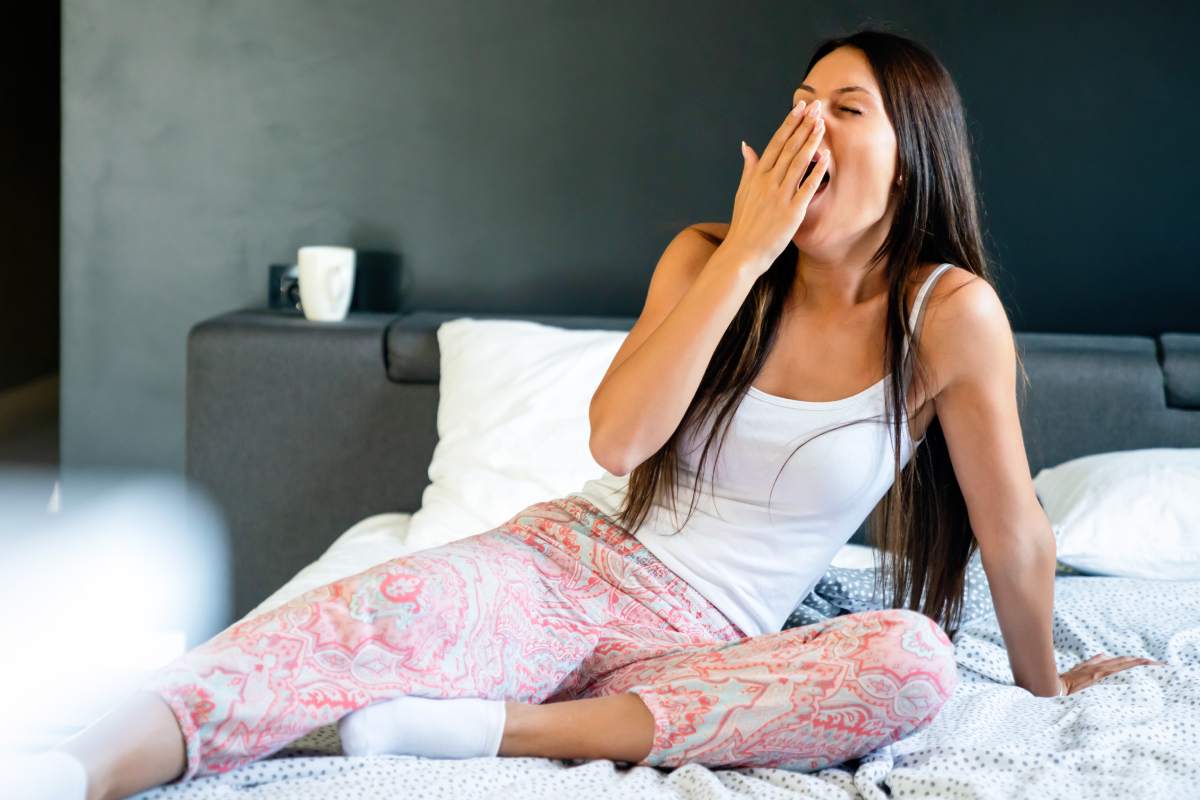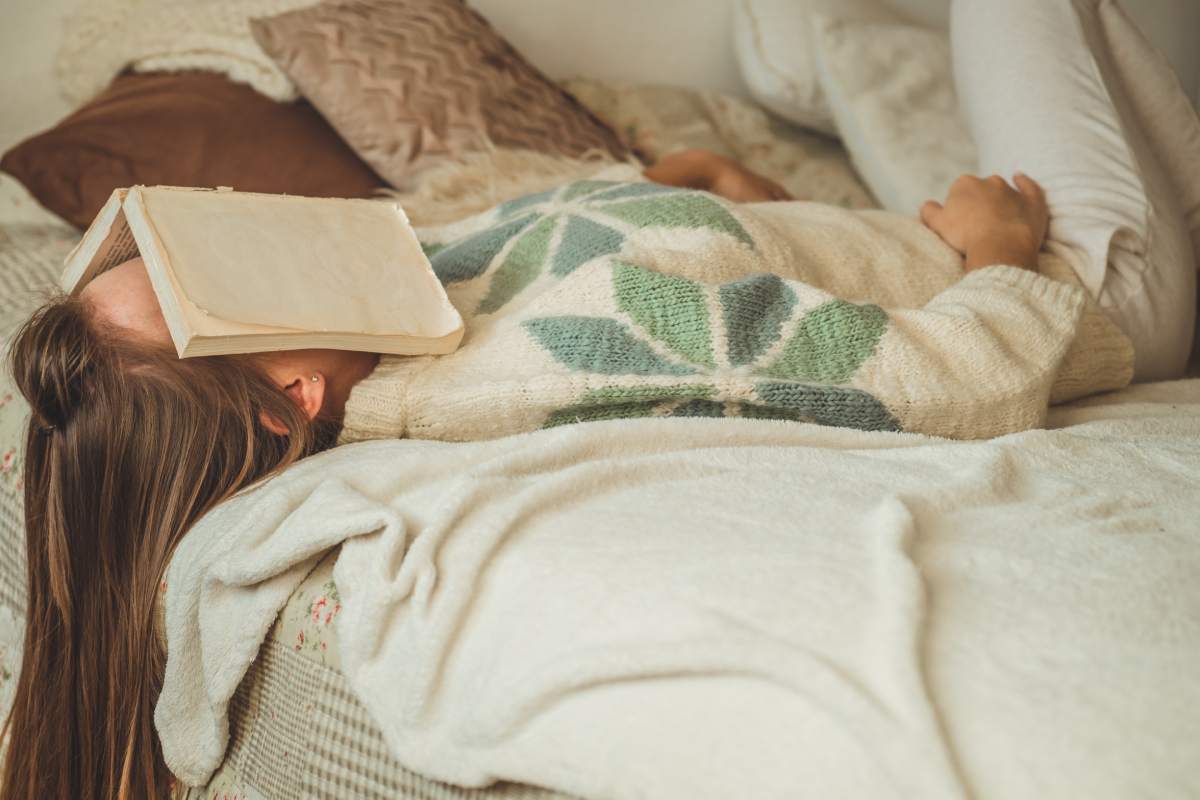Sleep is a fundamental pillar of health, influencing everything from our cognitive function to our immune system. Despite its importance, many people struggle with poor sleep or sleep at times that are not optimal for their biological clock.
But when is the best time to go to sleep? And what can you do to fall asleep more easily? This article explores these questions and provides practical tips and tricks to help you improve your sleep quality.
Related article:
- Why do we dream of falling? Do variations of falling dreams have their own meaning?
- How do you know you are burnt out? How to differentiate it from stress? What is the fastest way to cure burnout?
When Is the Best Time to Go to Sleep?
The best time to go to sleep depends on various factors, including your age, lifestyle, and personal needs. However, research shows that aligning your sleep schedule with your circadian rhythm (your body’s natural 24-hour clock) is essential for good sleep quality.
- Circadian Rhythm: The Body’s Natural ClockThe circadian rhythm governs many physiological processes, including your sleep-wake cycle. In an ideal world, your sleep would align with the natural light-dark cycle: rising with the sun and sleeping soon after nightfall. In modern society, however, artificial light, work schedules, and other factors can disrupt this rhythm, leading to poor sleep quality.
- Optimal Bedtime for AdultsStudies suggest that most adults go to bed between 10 PM and 11 PM is the best time. This window typically aligns with the natural alert dip after the evening, preparing your body to wind down for sleep. Going to bed in this time frame also supports the body’s natural production of melatonin, the sleep hormone, which is at its peak during this period.
- Age and Sleep NeedsWhile adults should aim for 7 to 9 hours of sleep per night, the timing of sleep can vary by age. Children and teenagers tend to have later sleep-wake cycles due to changes in their circadian rhythms, often leading to later bedtimes and wake-up times. Older adults may find that they get sleepy earlier in the evening and wake up earlier in the morning.
Why Going to Bed at the Right Time Matters
Choosing the right time to go to bed is more than just about how many hours of sleep you get. Your body needs to move through various sleep cycles (light sleep, deep sleep, and REM sleep) multiple times each night. Going to bed at the wrong time, or consistently getting too little sleep, can disrupt these cycles and affect everything from your mood to your physical health.
- Improved Cognitive FunctionGood sleep allows your brain to process and consolidate information. When you sleep at the right time, you’re more likely to get high-quality sleep, which boosts memory, learning, and problem-solving skills.
- Enhanced Physical HealthProper sleep helps regulate the hormones that control hunger, metabolism, and immune function. Disrupted sleep or going to bed too late can lead to imbalances in these systems, increasing the risk of weight gain, diabetes, and cardiovascular disease.
- Emotional Well-beingChronic sleep deprivation or sleeping at odd hours can lead to mood disorders like depression and anxiety. Sticking to a regular sleep schedule helps stabilize mood and reduce feelings of stress and irritability.
Tricks to Help You Fall Asleep Easier
Now that you know the best time to go to bed, let’s look at some proven techniques to help you fall asleep faster and stay asleep longer.
- Establish a Consistent Sleep RoutineOne of the best ways to improve your sleep quality is to go to bed and wake up at the same time every day, even on weekends. Consistency helps regulate your body’s internal clock, making it easier to fall asleep and wake up naturally.
- Limit Exposure to Blue Light in the EveningBlue light from phones, computers, and televisions interferes with the production of melatonin. To promote better sleep, avoid screens at least 1 to 2 hours before bed. If you need to use your devices, consider using blue-light-blocking glasses or switching to night mode.
- Create a Relaxing Pre-Sleep RoutineDeveloping a calming bedtime routine can signal to your body that it’s time to wind down. This might include activities such as reading, listening to soothing music, taking a warm bath, or practising relaxation techniques like deep breathing or meditation.
- Keep Your Bedroom Cool, Dark, and QuietYour sleep environment plays a crucial role in how well you rest. The ideal bedroom temperature for most people is between 15 to 19°C. Darkness helps your body produce melatonin, so blackout curtains or an eye mask can be helpful. White noise machines or earplugs can block out disruptive sounds.
- Watch What You Eat and DrinkAvoid heavy meals, caffeine, and alcohol close to bedtime. Caffeine can stay in your system for hours, making it harder to fall asleep, while alcohol may initially make you sleepy but disrupts your sleep cycles later in the night.
- Exercise Regularly, But Not Too Close to BedtimeRegular physical activity is excellent for sleep, but exercising too late in the evening can be stimulating. Try to complete your workout at least three hours before bed to give your body time to wind down.
- Manage Stress and AnxietyStress and anxiety are common sleep disruptors. Techniques like mindfulness meditation, progressive muscle relaxation, or journaling can help you manage anxious thoughts and calm your mind before bed.
Natural Sleep Aids and Supplements
If you’ve tried everything and still find it hard to fall asleep, certain natural remedies might help. However, it’s essential to consult with a healthcare provider before starting any new supplement.
- Melatonin SupplementsMelatonin is a hormone your body naturally produces to regulate sleep. Taking melatonin supplements can be helpful for people who struggle to fall asleep due to jet lag, shift work, or other factors that disrupt their sleep schedule. However, it’s best to use these supplements short-term and under the guidance of a healthcare provider.
- MagnesiumMagnesium is a mineral that plays a role in hundreds of bodily processes, including sleep. Studies show that magnesium supplements may help improve sleep quality, particularly in people with insomnia.
- Herbal Teas and RemediesHerbal teas such as chamomile, valerian root, and lavender are known for their relaxing properties. Drinking a warm cup of herbal tea before bed can help promote relaxation and make it easier to fall asleep.
What to Do If You Still Can’t Fall Asleep
Sometimes, despite your best efforts, you may still struggle to fall asleep. Here are some additional tips to try if you find yourself tossing and turning.
- Get Out of Bed if You Can’t SleepIf you’re lying in bed unable to sleep for more than 20 minutes, get up and do something relaxing in another room, such as reading or listening to soft music. Avoid stimulating activities or bright lights, and only return to bed when you feel sleepy.
- Practice Sleep-Enhancing Breathing TechniquesTechniques like the 4-7-8 breathing method can help calm your nervous system and induce sleep. To try it, breathe in through your nose for 4 seconds, hold your breath for 7 seconds, and exhale through your mouth for 8 seconds. Repeat the cycle until you feel more relaxed.
- Limit Naps During the DayWhile napping can be tempting if you didn’t sleep well the night before, long naps can disrupt your nighttime sleep. If you must nap, limit it to 20 to 30 minutes and avoid napping late in the afternoon.
Conclusion
The best time to go to sleep largely depends on aligning your schedule with your natural circadian rhythm. For most adults, going to bed between 10 PM and 11 PM supports optimal sleep cycles and helps maintain good health.
Creating a consistent sleep routine, managing your sleep environment, and practising relaxation techniques can make it easier to fall asleep and improve your overall sleep quality. By making small adjustments to your habits and environment, you can enjoy restful, restorative sleep every night.







